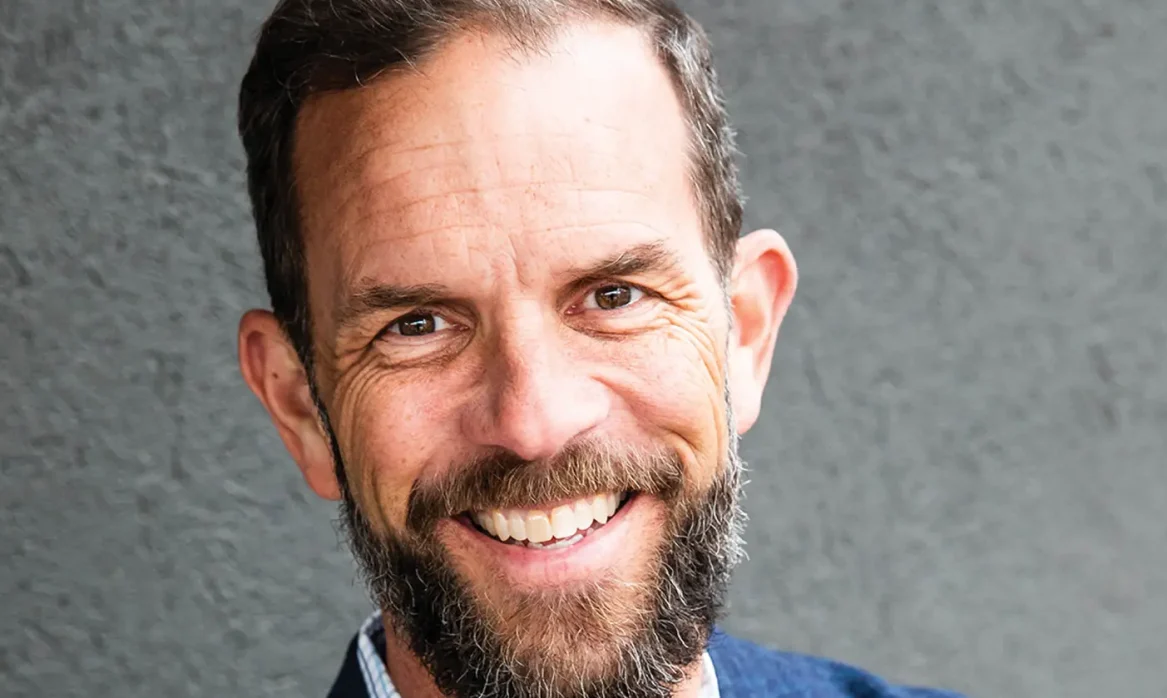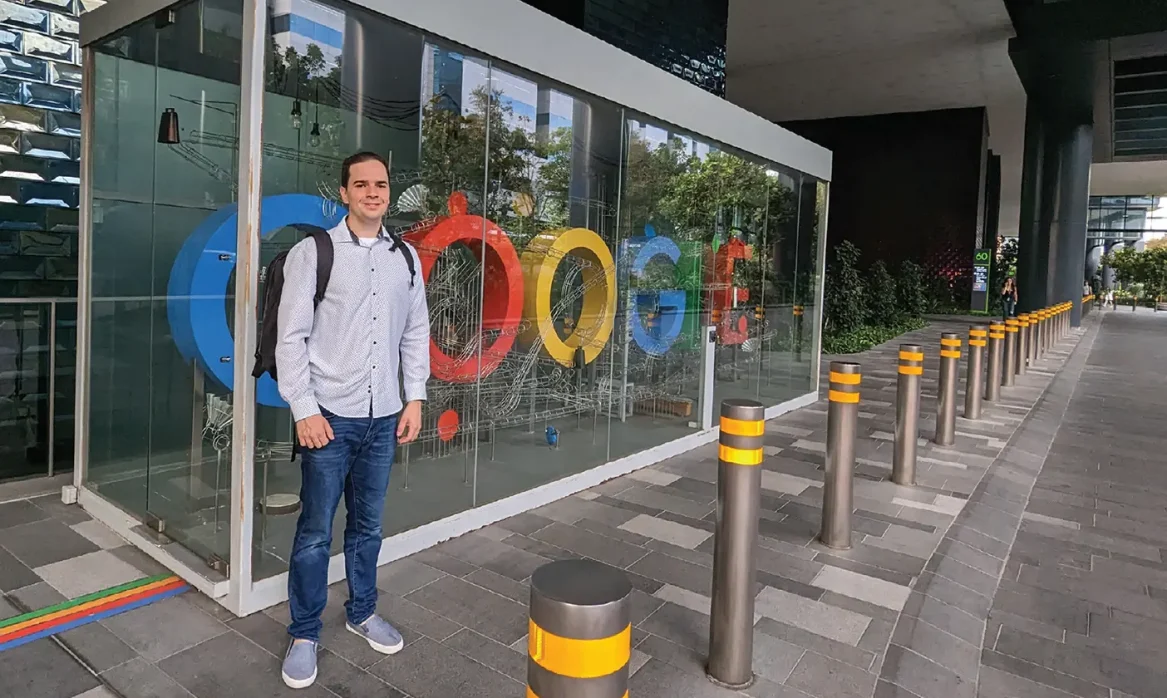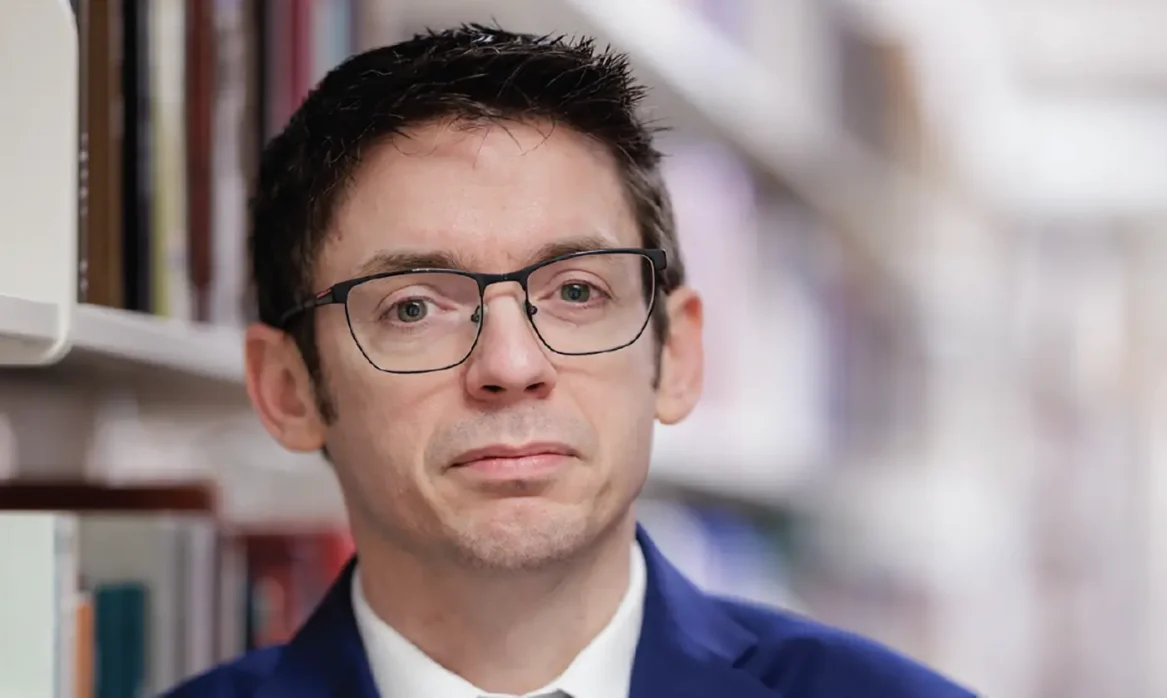BYU alums are building community for people experiencing chronic homelessness.
After spending 18 months in jail in 2017, Steve Pearson became homeless, bouncing between transitional housing locations for years. With the help of Utah’s Mental Health Court, he began to turn his life around. One day in 2023, Pearson’s case manager told him he had been referred to be part of The Other Side Village, a self-funded tiny-home community being built for homeless people on a 40-acre parcel of land in West Salt Lake, Utah. To join the community, residents must first enroll in a related preparatory school. Pearson, the first graduate, says he is grateful for all he’s learned: “It’s been a godsend. . . . There isn’t any way it hasn’t changed me.”
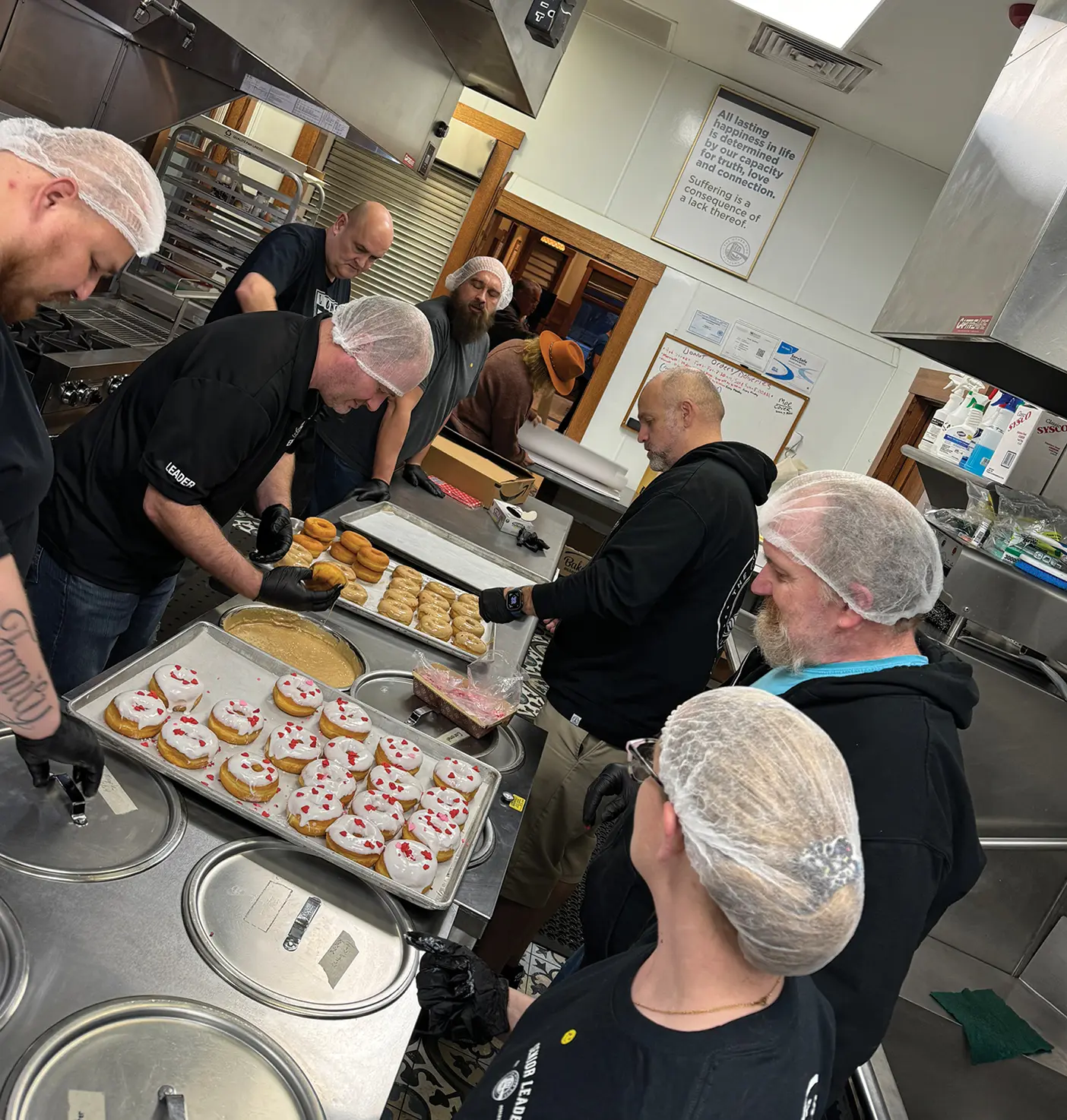
The Other Side Village founders, Timothy V. Stay (BS ’86, MBA ’89, MA ’92) and Joseph W. Grenny (BA ’91), believe in the power of community to change lives.
Their community-based interventions began in 2015, when they created The Other Side Academy in Salt Lake City, later opening a Denver location. The long-term residential program helps those caught in a cycle of addictions and incarceration. Grenny, a best-selling author, based the program on Delancey Street, a model community in California that provides education, housing, and work opportunities following, or in place of, incarceration. Grenny teamed up with Stay, a serial entrepreneur, to create a similar program for Utah residents. With the academy’s focus on changing behavior, participants in the 30-month program maintain high rates of sobriety, stay out of jail, and graduate with employment.
Although The Other Side Village addresses the needs of a different population than the academy—homeless people—Grenny says the approach is the same: “[There] is a set of principles for community building and personal transformation that are useful for a whole variety of social challenges.”
In 2021 when Stay and Grenny heard that Salt Lake City mayor Erin Mendenhall planned to build a tiny-house village to help address homelessness, they offered to share lessons they’d learned while running the academy. Providing housing alone wouldn’t resolve the problems associated with homelessness, they explained. Real change requires a community. They wanted to use their insights to lead the new program, and Mayor Mendenhall quickly agreed.
And so The Other Side Village was born.
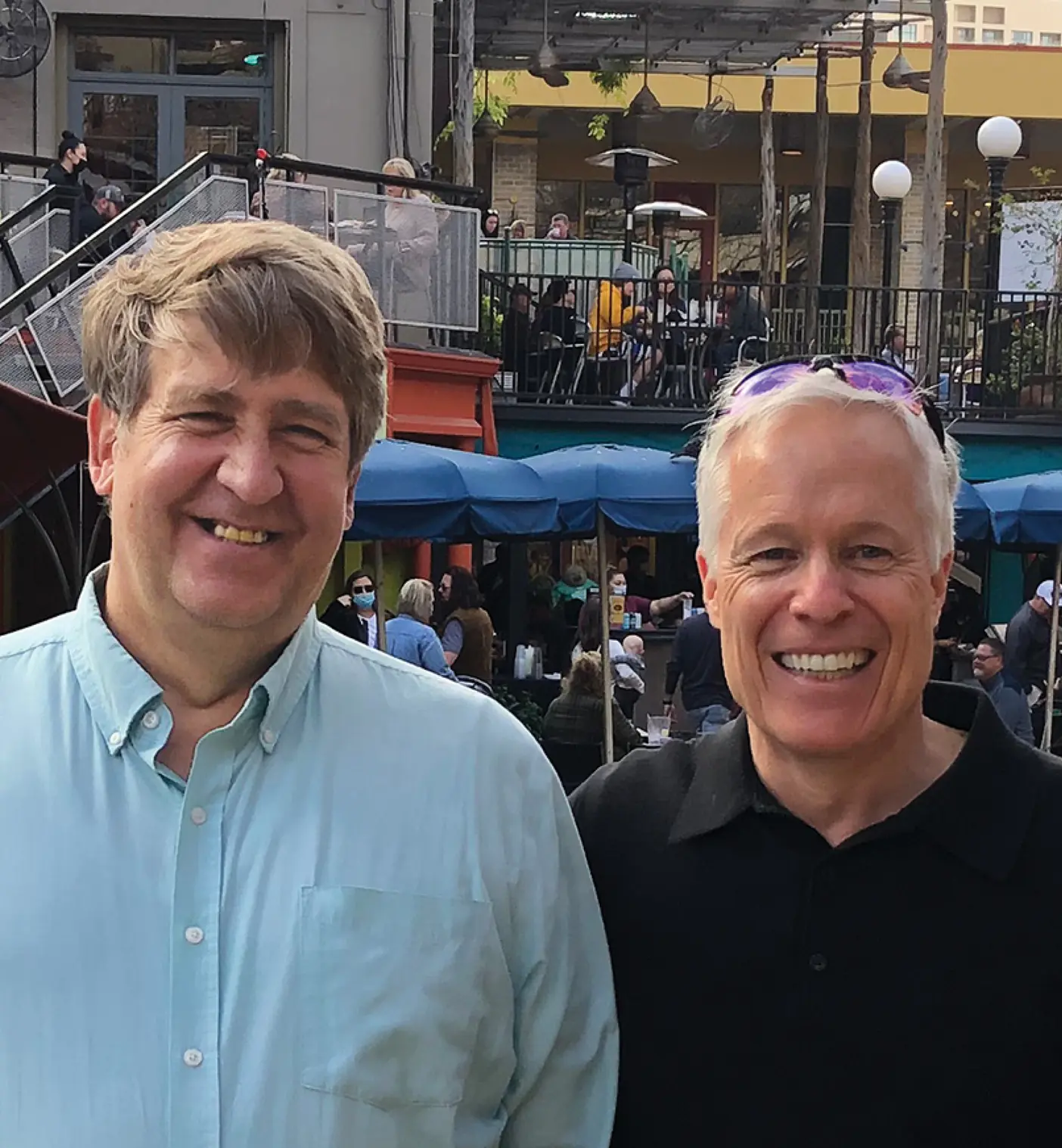
“We’ll have between 500 and 600 people who have been chronically homeless living in the community,” Grenny says. The Other Side Village will be arranged in neighborhoods of 20–30 homes in circular patterns facing inward and feature porches to increase interaction.
Knowing that entering The Other Side Village straight from the streets would be difficult, Stay and Grenny opened a school a few miles from the village’s site. There students like Pearson prepare for residence by learning social, emotional, vocational, and financial skills. After 6 to 12 months, they will transition into the village.
The village, set to open this fall, will be self-funded by social enterprises run by residents, such as the already-open Other Side Donuts shop, as well as a hotel, an event center, and more. Grenny says this self-reliant approach is crucial to the change they hope to instill in residents. “There is no dignity and growth without personal responsibility,” he says.
Their work on these projects has given them insight into the worth and potential of every individual. “I have felt God’s love for His children, and I have seen His hand in this work in powerful ways,” Stay says. “He cares desperately about those who are suffering, about those who are caught in these destructive, vicious cycles. He cares about the homeless and those who are living in squalor, and He wants us to do something about it and is willing to help us.”










